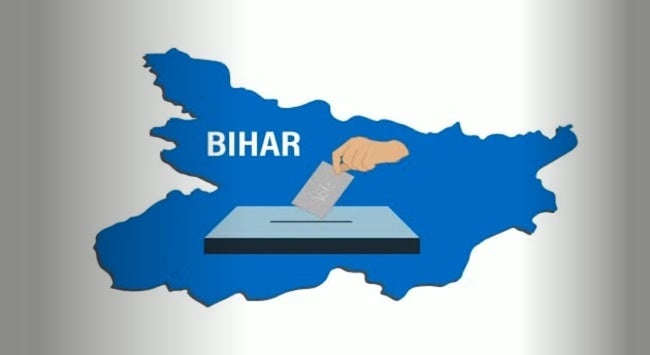Summary
The Election Commission’s Special Intensive Revision (SIR) of electoral rolls in Bihar, conducted months ahead of the state election, has triggered a political controversy. While the aim of the SIR is to ensure that no eligible citizen is excluded from the electoral rolls, opposition political parties have argued that the exercise will not only disenfranchise eligible voters but is also not feasible within the specified timeline.
The Bihar elections will likely be held in October-November 2025. However, well before the polls, an initiative of India’s Election Commission – the Special Intensive Revision (SIR) – has triggered a political row. Formally, the aim of the SIR, which began on 1 July 2025, is to “ensure that no eligible citizen is left out while no ineligible person is included in the Electoral Roll”. However, opposition political parties have argued that the exercise will not only disenfranchise eligible voters but is also not feasible to conduct within the stipulated timeline of two months.
The last date for submission of enumeration forms is 25 July 2025 and a draft list is expected to be released on 1 August 2025. Any member of the public can subsequently file objections to the draft electoral rolls.
During the current SIR, those who are already in the 2003 electoral rolls – when the last SIR was conducted – will only need to fill the enumeration form. Others will have to submit one of the 11 identification documents listed by the Election Commission. These include a birth certificate, passport and government employee card. Many of these documents are unlikely to be in the possession of poor and marginalised citizens. Surveys done by non-governmental organisations have found that the poor, Dalits, extremely backward communities, Muslims and women cutting across all communities are least likely to have the required documents.
For those who possess these documents, there are further bureaucratic hurdles. Those born before 1987 must provide a document with place and date of birth. Those born between 1987 and 2004 must produce a document with their parents’ date of birth and one of the 11 listed documents proving their own place and date of birth. Those born after 2004 must meet even more stringent requirements – providing proof of both parents’ date and place of birth in addition to their own.
One of the anomalies of the exercise is that some of the most commonly used identification document in India, such as the Aadhaar card, Permanent Account Number card and voter identification document – the last issued by the Election Commission itself – are not part of the list of accepted documents. This had sought to be rectified by the Supreme Court, which is currently hearing a clutch of petitions challenging the SIR. While hearing the petitions, the Supreme Court on 17 July 2025 had noted that the determination of citizenship was not the job of the Election Commission and that it was the prerogative of the Union government. The apex court had also urged the Election Commission to consider the Aadhaar card, voter identification document and ration cards in the Bihar SIR process.
In a subsequent hearing on 21 July 2025, the Election Commission, while responding to the petitioner’s argument that it was overstepping its jurisdiction by calling upon individuals to prove citizenship, submitted that it is statutorily bound to ensure that only citizens of India are registered as voters. The Election Commission affirmed that it was not undertaking any independent exercise of determining the question of citizenship, but only ensuring that names of non-citizens are not included in the electoral rolls. The Election Commission has also rejected the Supreme Court’s suggestion to consider the Aadhaar card, voter identification document and ration cards as proof of identity. The next hearing is scheduled for 28 July 2025.
It is not just the onerous process of proving one’s identity that has worried opposition parties and analysts. They have raised the issue of the timing of the SIR, which could have a serious exclusionary effect with a large segment of Bihar’s population – by some estimates a 10th of the state’s population – who are migrant labourers not likely to be physically present during the enumeration exercise.
Another charge against the SIR is that it is aiming to bring the controversial National Register of Citizens (NRC) through the backdoor. The NRC is intended to document all legal citizens of India and has been implemented only in the eastern state of Assam. The government eventually plans to implement it for the rest of the country. The fact that the NRC is listed as one of the 11 documents for proof of citizenship has added fuel to the fire.
Despite the controversy and the ongoing litigation, the Election Commission has claimed that it is making good progress in the SIR. It has said that nearly 95 per cent of the total enumeration forms have been collected so far though it has not revealed how many of these are incomplete. The Election Commission has also made it clear that the SIR is not going to be restricted to Bihar. It has already begun preparations for a similar exercise in the rest of the country, prompting protests from opposition leaders. The ongoing monsoon session of parliament has been disrupted by protests over the SIR signalling that the opposition will keep the issue on the boil.
. . . . .
Dr Ronojoy Sen is a Senior Research Fellow and Research Lead (Politics, Society and Governance) at the Institute of South Asian Studies (ISAS), an autonomous research institute at the National University of Singapore. He can be contacted at isasrs@nus.edu.sg. The author bears full responsibility for the facts cited and opinions expressed in this paper.
Image Credit: Image Shutterstock
-
 More From :
More From :
-
 Tags :
Tags :
-
 Download PDF
Download PDF



